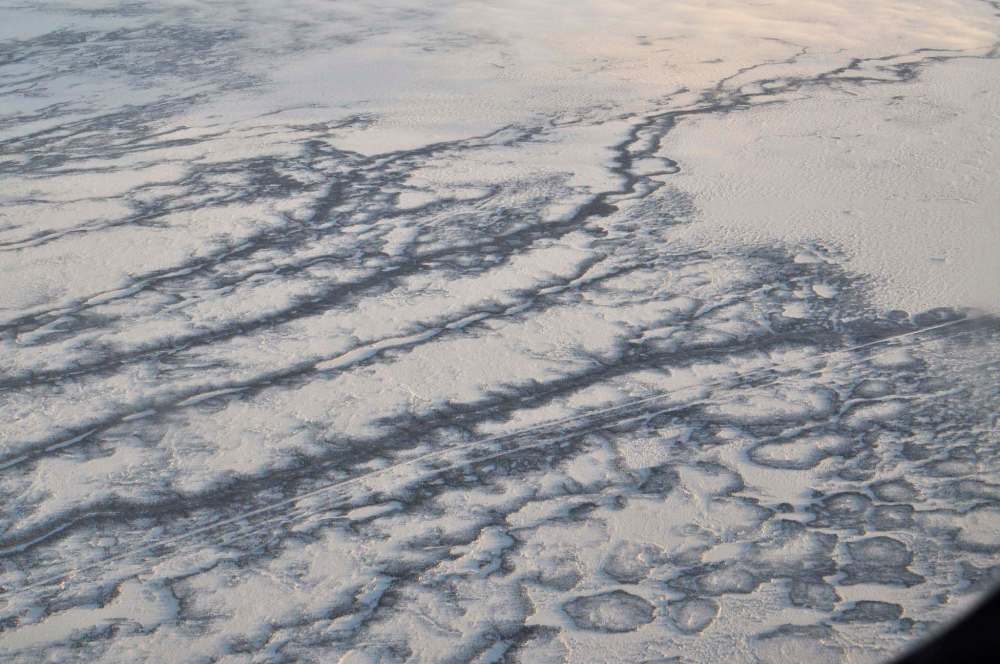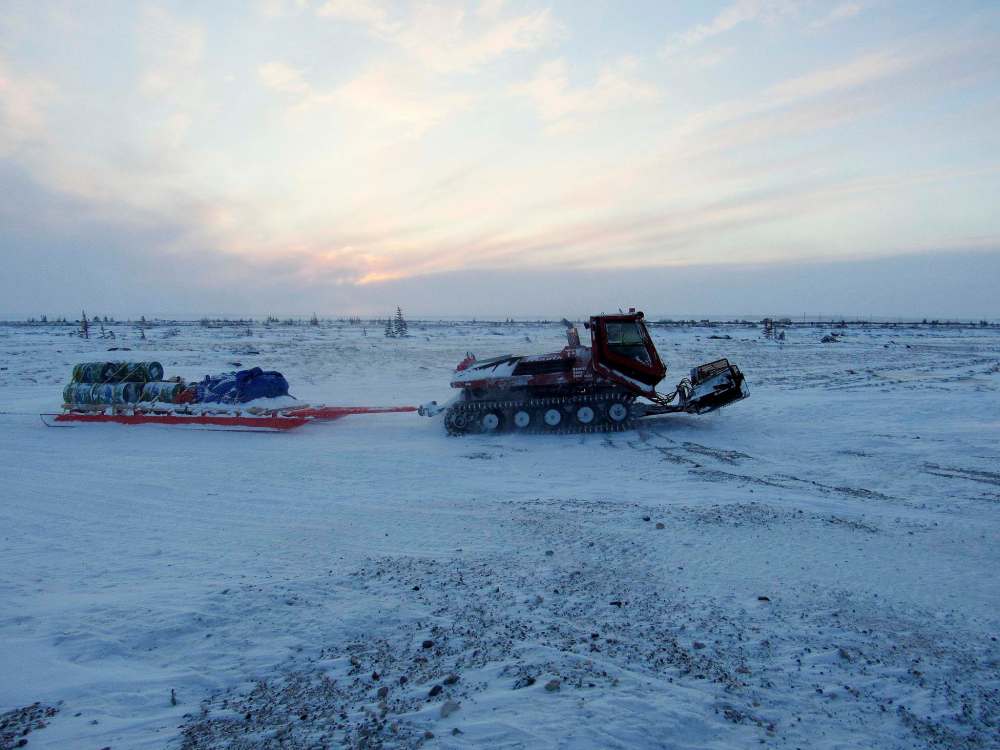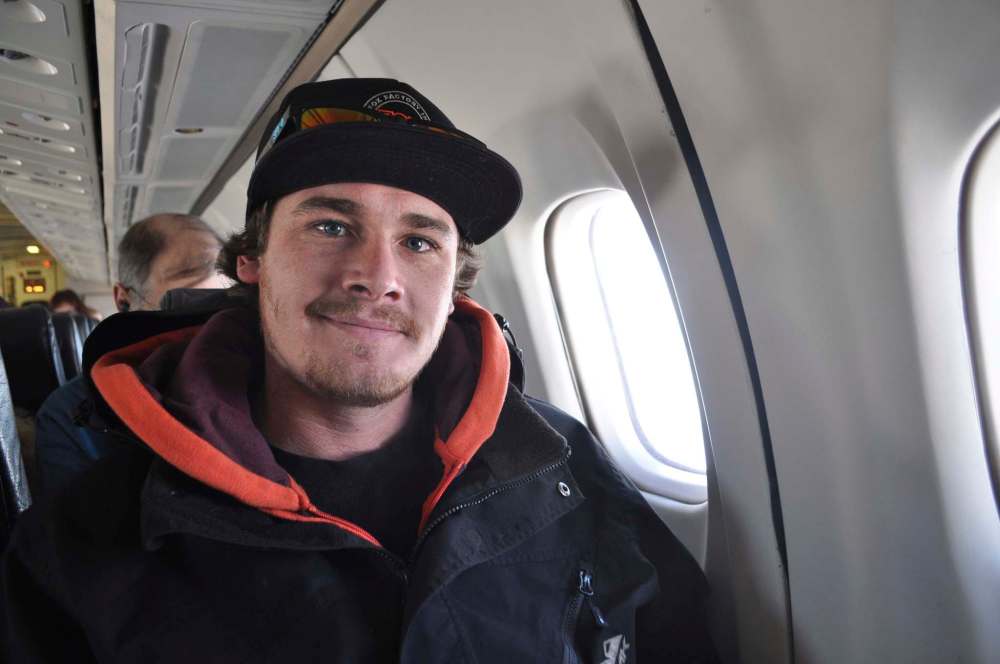Partnership in meltdown: First Nation files $1.3M lawsuit against Churchill firm over supply-route ice trail
Read this article for free:
or
Already have an account? Log in here »
To continue reading, please subscribe:
Monthly Digital Subscription
$0 for the first 4 weeks*
- Enjoy unlimited reading on winnipegfreepress.com
- Read the E-Edition, our digital replica newspaper
- Access News Break, our award-winning app
- Play interactive puzzles
*No charge for 4 weeks then price increases to the regular rate of $19.00 plus GST every four weeks. Offer available to new and qualified returning subscribers only. Cancel any time.
Monthly Digital Subscription
$4.75/week*
- Enjoy unlimited reading on winnipegfreepress.com
- Read the E-Edition, our digital replica newspaper
- Access News Break, our award-winning app
- Play interactive puzzles
*Billed as $19 plus GST every four weeks. Cancel any time.
To continue reading, please subscribe:
Add Free Press access to your Brandon Sun subscription for only an additional
$1 for the first 4 weeks*
*Your next subscription payment will increase by $1.00 and you will be charged $16.99 plus GST for four weeks. After four weeks, your payment will increase to $23.99 plus GST every four weeks.
Read unlimited articles for free today:
or
Already have an account? Log in here »
Hey there, time traveller!
This article was published 17/07/2018 (2704 days ago), so information in it may no longer be current.
OTTAWA — What started as a pioneering effort to unite northern Manitoba and get Churchill much-needed supplies has devolved into a $1.3-million lawsuit, as the leaders of last winter’s ice trail fight over the project’s costs and profits.
The ice trail, also known as a cat train, was carved out an overland path for specialized vehicles to cross frozen muskeg, often running parallel to the Hudson Bay Railway, which washed out in May 2017.
Fox Lake Ventures, based out of Fox Lake Cree Nation, claims Polar Industries left them on the hook for numerous expenses and didn’t share the revenues after agreeing to do so. The company rejects that claim, instead saying the First Nation is inflating its figures and making false statements.

None of the allegations have been proven in court.
The two parties agree that they set up a joint bank account and agreed to split the profits and costs, with 51 per cent going to Fox Lake. They agree the project started in November, but they dispute the actual date, and whether it wrapped up in March or April, which could impact how salaries are calculated.
Fox Lake claims it received no revenues from the project. It alleges Polar entered agreements without its consent, issued invoices solely payable to Polar (or its subsidiary, Remote Area Services) and reimbursing its own expenses while “refusing and/or neglected to reimburse Fox Lake.”
It’s unclear how Fox Lake tabulated expenses. Its court filings list $80,000 in up-front capital, $188,000 in equipment and $277,000 in payroll; Polar claims those last two are inflated. Fox Lake said the bulk of its expenses, $900,000 worth, were third-party costs in connection with the project.
Polar claims the labour costs submitted by (Fox Lake) were severely inflated from the number of employees and their wages to the performance of the employees during work hours, none of which Polar said it had been provided an opportunity to review.
The company says it had an existing client base before the project, that allowed it to partner with third-party groups without looping in Fox Lake. It said a budget that Fox Lake filed in court was merely intended as a clerical estimate and that the joint bank account didn’t mean they had to deposit all the funds. Polar argued Fox Lake could have instead invoiced them.

In a counter-claim, Polar further alleges that Fox Lake’s “inattention and mismanagement of the project” caused them loses, which they will seek once they’re able to calculate them.
Robert Wavey, a prominent member of Fox Lake who took part in the ice trail, said he couldn’t comment on the court case.
Previously, Wavey described the project as First Nations working in harmony with Churchill locals, including helping them navigate numerous traplines in the area and making sure there wasn’t any adverse impact on nature. They took rests in cabins, both traditional ones for trappers as well as shelters used for railway workers.
Months ago, Natural Resources Minister Jim Carr recalled personally handing over a cheque for part of the $100,000 in federal funding to the team, saying it could help cement Churchill’s role in a looming Arctic strategy.
The idea was to get much-needed goods to the community, while employing at least 24 local residents, some of whom have only summertime tourism jobs. Later, the equipment and expertise could be used to reach western Nunavut, though that terrain is much more difficult.
Unlike a winter road for snowmobiles and trucks, the trail is meant for track-turning vehicles that roll along at 10 kilometres per hour, carrying machinery, food and building supplies, at a cost much cheaper than existing flights. It is created by flooding dips in the ground and letting the water freeze over.

Remi Foubert-Allen started the project last winter at age 26. When the first convoy of freight arrived in December, locals greeted their arrival with banners and cheers. He previously said the project was much more difficult than anticipated, with whiteout weather conditions.
The team roughly followed the Manitoba Hydro transmission line from Gillam to Churchill, thanks to a special permit from the province. But Foubert-Allen’s father, Dwight Allen, said that permit caused headaches, because provincial officials from Sustainable Development complained that didn’t outline where the team stored its fuel, which was needed at various points along the line.
“They shut us down for two weeks in our prime time of moving freight,” Allen claimed. “We got the rug pulled out from under us.”
Wavey said the team couldn’t add new material to the line, but could still move what was already along the trail. He also didn’t recall whether the disruption lasted two weeks. “There were some environmental issues that we had to deal with,” he said Tuesday, but “that was all resolved.”
A spokesman for Sustainable Development did not respond by deadline to a request to explain what had happened. Foubert-Allen himself was unavailable for an interview Tuesday afternoon, while Polar’s president did not answer a phone line that connected to a full voicemail box.
Fox Lake filed its statement of claim May 17, while Polar responded with a counter-claim June 29. No court hearings have been scheduled at this time.

Despite the antagonistic tone in the court records, Wavey said there could be another ice trail this winter, possibly with Polar on board.
“Maybe we’ll have another go; who knows. It seems the (railway) track’s not going to get fixed in a timely manner, but we’ll see,” he said. “I’m sure it keeps Churchill up at night.”
dylan.robertson@freepress.mb.ca










